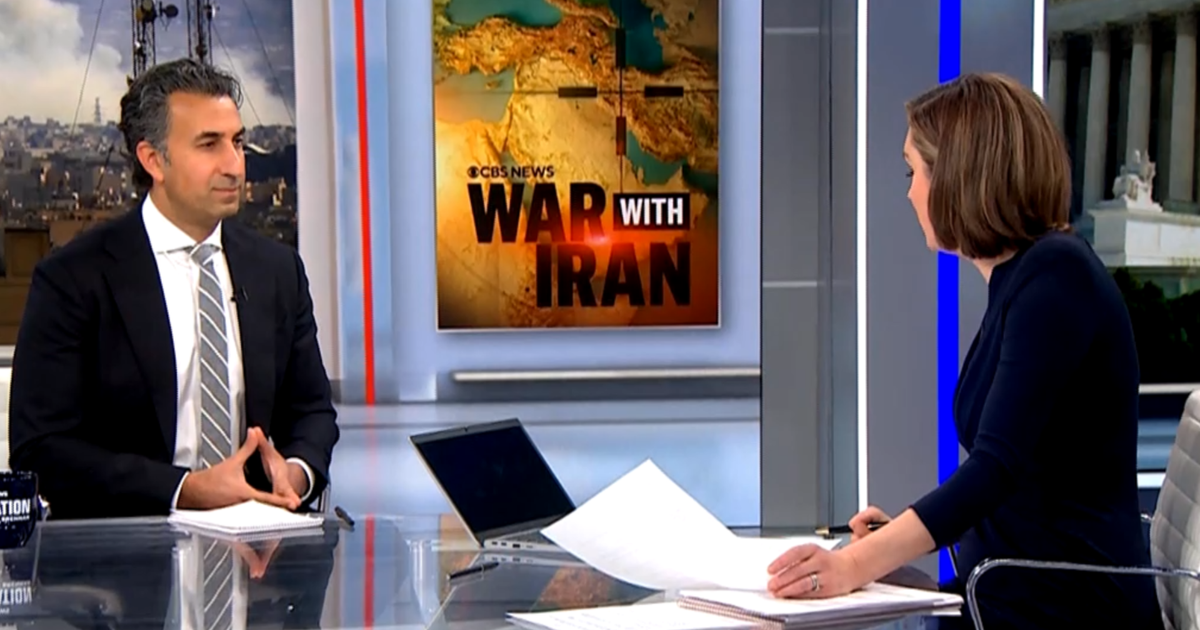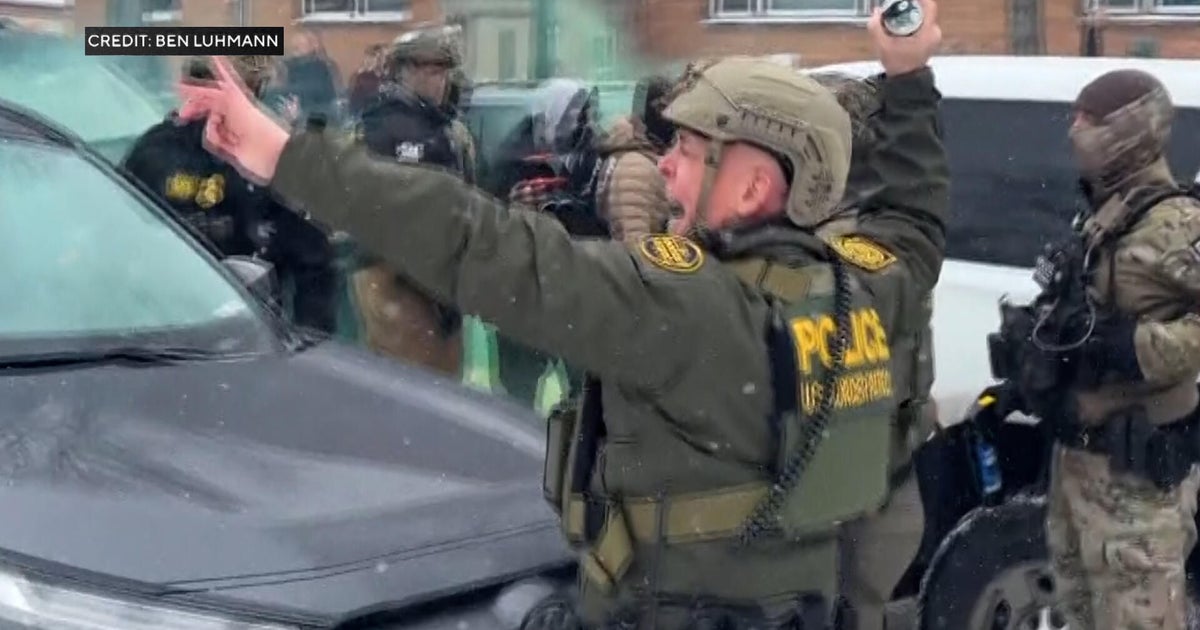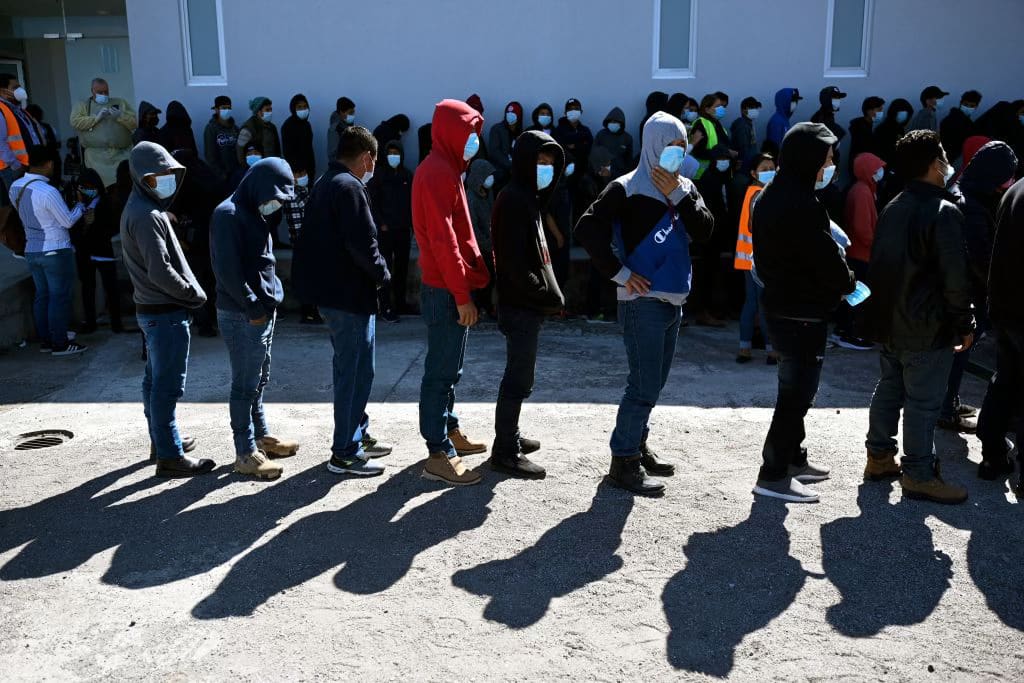Transcript: HHS Secretary Alex Azar on "Face the Nation," July 26, 2020
The following is a transcript of an interview with former HHS Secretary Alex Azar that aired Sunday, July 26, 2020, on "Face the Nation."
MARGARET BRENNAN: Joining us now is the secretary of Health and Human Services Alex Azar. Mr. Secretary, thank you for joining us. The president said this week the virus will get worse before it gets better. What does that mean? What is the administration projecting?
HEALTH AND HUMAN SERVICES SECRETARY ALEX AZAR: Well, MARGARET, as the president said, we're facing a very serious situation with these- these outbreaks. It is serious but the good news is, thanks to the president's leadership, we have the tools to deal with it. We have health system capacity--
MARGARET BRENNAN: But does that mean you're- you're, actually raising the projections?
SEC. AZAR: We have personal protective equipment.
MARGARET BRENNAN: Because very specifically, the White House had said 240,000 Americans could succumb to this in the first wave.
SEC. AZAR: Well--
MARGARET BRENNAN: Does what the president said indicate you are now upping those projections?
SEC. AZAR: Well, MARGARET, it's not about projections so much as what are we doing about it, which is we need to wear face coverings. We need to practice social distancing, good personal hygiene, and in our hot zones, close our bars, restrict our indoor dining, restrict our home gatherings. We know this works. The modelling shows, those--
MARGARET BRENNAN: Yes.
SEC. AZAR: --simple steps will lead to outcomes in terms of disease spread that are comparable to shutting down without all of the pain of shutting down. And if we comply as individuals--
MARGARET BRENNAN: Yeah.
SEC. AZAR: --if we don't wear our masks, we can avoid further shutdowns. But if we don't, that will be the consequence.
MARGARET BERNNAN: OK, well, we're above 140,000 dead, 1,000 per day succumbing to this. So that is why I'm asking about the projections. Why did the president oppose including more testing money in this latest bill?
SEC. AZAR: Well, we got $25 billion of money in the previous acts, $11 billion of it for states. They've pulled down about $40 million of it so far. The president's going to make sure that he works with Congress, that there's adequate funding for testing. I'm going to leave it to the chief of staff and the secretary of the treasury who are negotiating with Congress now. But we'll make sure there's adequate money that meets the needs of this response.
MARGARET BERNNAN: Because Senate Democrats released a letter this week, and I've also heard the same from Senate Republicans, that they say you in particular at HHS are sitting on some of that money. In fact, Senate Democrats in a letter this week said that the $25 billion that was provided in April for testing and tracing, less than half has actually been obligated. Why is the federal government sitting on it?
SEC. AZAR: Well, we've got $2 billion of money that's being devoted towards developing the next generation diagnostics. You know, we'd love to get to the point that we have a rapid point-of-care diagnostic that is readily available, easily produced and low cost. So we're doing that at the NIH. We have $11 billion that we have pumped out to the states that they are not yet using. You know, our public health labs are running at 58% of their capacity even though we have the supplies to support them fully. We've got to get full shift work into those so we increase the capacities there.
MARGARET BRENNAN: And you have no power over the states or labs to do that?
SEC. AZAR: Well, we're certainly talking to the governors and telling them they've got to use this money to get up and running and get that happening. We've made available- we're meeting every need they've got for supplies, for- for testing. But at the end of the day, our governors have to take that initiative and get their public health labs fully up and running even as we improve testing through, say, our commercial labs. You know, just this last week, we've approved now pooled testing at the commercial labs--
MARGARET BRENNAN: Yeah.
SEC. AZAR: -- that enables four or five tests to be run in a single- a single test. So it expands capacity dramatically.
MARGARET BRENNAN: Right.
SEC. AZAR: But the most important thing we've got to do right now is each of us act responsibly as individuals, wear our face coverings, practice social distancing,--
MARGARET BRENNAN: Yes.
SEC. AZAR: --use good personal hygiene. We know this works--
MARGARET BRENNAN: Yes.
SEC. AZAR: --if we just will do this as individuals.
MARGARET BRENNAN: We- we take the health advice definitely very seriously here. I want to ask you, though, about schools. The CDC did release guidelines. HHS weighed in on them. I- I want to know why wasn't there a benchmark on when schools should shut down?
SEC. AZAR: We don't believe that there are uniform thresholds for- for- for school reopenings. We believe the presumption should be--
MARGARET BRENNAN: But don't you- don't you actually have thresholds for what you consider a hot spot. Isn't it actually 5% very specifically laid out by the administration? Why wouldn't that apply to a school in a district with that number?
SEC. AZAR: So, MARGARET, the- what you're referring to is positive testing--
MARGARET BRENNAN: Yes.
SEC. AZAR: --and at 5%, we call that a yellow community. At 10%, we call it red. That's an epidemiological early warning sign of potential spread of disease. That's not been defined as a threshold for reopening of any kind. The steps that we can use that are data driven, informed by doctors, they're smart, sensible approaches that can get our kids back safely--
MARGARET BRENNAN: So if positivity--
SEC. AZAR: --and our staff back safely to school.
MARGARET BRENNAN: So if positivity is between five and 10%, should a school stay open?
SEC. AZAR: Each community is going to have to make the determination about the circumstances for reopening and what steps they take for reopening, but the presumption should be--
MARGARET BRENNAN: OK.
SEC. AZAR: --we get our kids back to school,--
MARGARET BRENNAN: Understood, Mr. Secretary.
SEC. AZAR: --and we figure out how to make that happen.
MARGARET BRENNAN: I'm going to have to hit this commercial break and leave that there with you. Thank you very much, Secretary Azar. We'll be right back.



